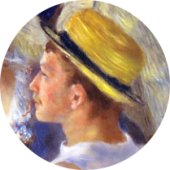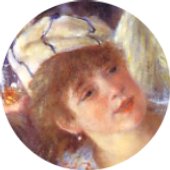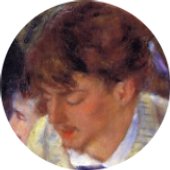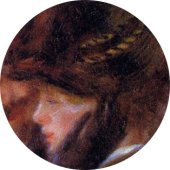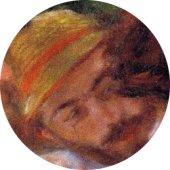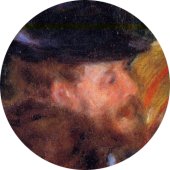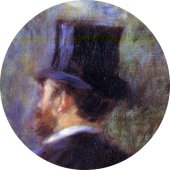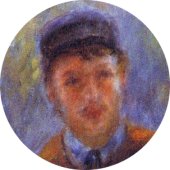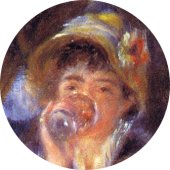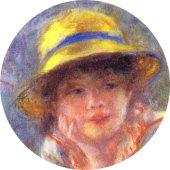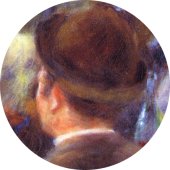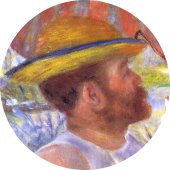The Models
Susan Vreeland's Luncheon of the Boating Party shimmers like the surface of an impressionist painting. Her cast of warm and vibrant characters delights and welcomes me to their luncheon and to their lives...My heart sings with the amazing artistic achievement of the author. Through her words and imagination, I have been allowed to enter the bohemian, artistic life of Paris in the 1880s.
--Sena Jeter Naslund, author of Ahab's Wife and Abundance: A Novel of Marie Antoinette.
"Light bathed the models and the table with warmth and brilliance. He admired each one, and had to blink back his joy so it wouldn't spill over."
Moving from the bottom right and going counter-clockwise around the painting, the characters are:
